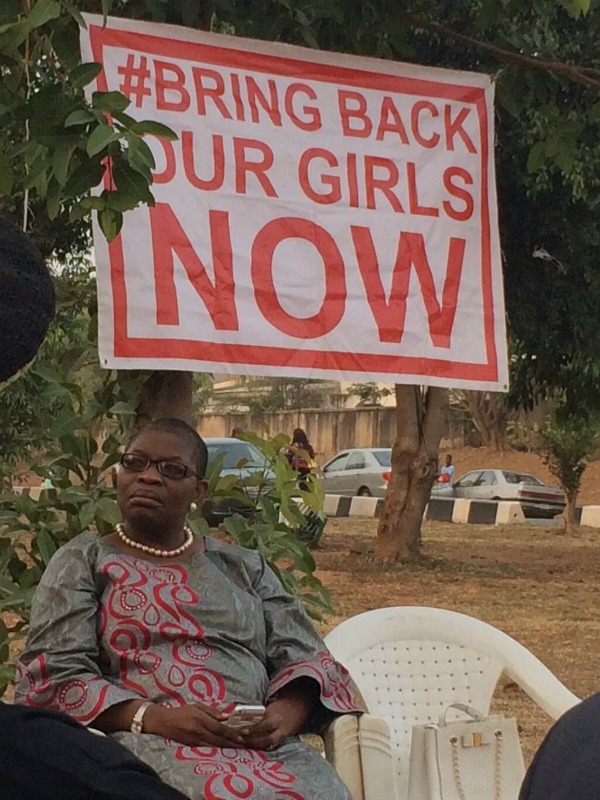
by Katinka | Jan 4, 2016 | Adoption, Africa, Family, Identity, Parenting
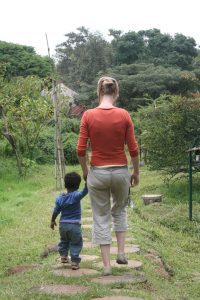 This time next week, I’ll be in Ethiopia with my daughter. My Ethiopian daughter. She is six years old, and four of those have been with us. Four years which have been wonderful and rough all at the same time.
This time next week, I’ll be in Ethiopia with my daughter. My Ethiopian daughter. She is six years old, and four of those have been with us. Four years which have been wonderful and rough all at the same time.
Before she was with us, we already spoke about returning to her birth country. Later. When she would be a teenager, in search of her identity. It would be a roots trip for her.
It turns out that six-year-old adoptees have glaring roots questions too. One day, she came up to us, plumped down on the couch and sighed dramatically.
I don’t know who I am!
I explained to her that she is the daughter of two mommies. One in Belgium, one in Ethiopia. She loves to hear that.
But not this time.
No, I mean…how do I know where I fit in the whole wide world?
I honestly told her that’s a difficult question. I don’t even know how to answer that one for myself.
She was devastated and sighed with even more drama. She’s good at that.
If it’s difficult for you, how am I supposed to find the answer then? You know where you come from. How am I supposed to know where I’m going if I don’t know where I come from?!
These kind of conversations led us to decide to take a roots trip with her now, instead of waiting for her to reach puberty. Moreover, we’ll keep on returning every few years, to keep her in touch with her roots. We know from fellow travelers that Ethiopia is addictive anyway.
Ever since we booked the trip, she has found a kind of peace. Returning to her country really means a lot to this little girl.
Of course, returning won’t all be magical, as she imagines it. No doubt, she will experience a culture shock, just like we did the first time we visited.
We try to prepare her for the poverty she will witness. The poverty she and her family were in, as she knows. It will be hard for her.
But Ethiopia is far more than poverty. To me, it’s the most beautiful and safe African country, with the kindest of people and of course, the best coffee. We’ll visit wild life centres, hike in the mountains and have injerra, the traditional dish, as our Christmas dinner.
I can’t wait to discover Ethiopia again through my daughter’s eyes.
How do you deal with identity questions from your little and big ones? Do they know struggles as well?
This is an original post to World Moms Blog by K10K @ The Penguin and The Panther.
The picture in this post is credited to the author.
If you ask her about her daytime job, Katinka will tell you all about the challenge of studying the fate of radioactive substances in the deep subsurface. Her most demanding and rewarding job however is raising four kids together with five other parents, each with their own quirks, wishes and (dis)abilities. As parenting and especially co-parenting involves a lot of letting go, she finds herself singing the theme song to Frozen over and over again, even when the kids are not even there...
More Posts

by Aisha Yesufu | Dec 26, 2015 | 2015, Africa, Nigeria, World Motherhood
Chibok Girls Remain in Captivity
Hmmmmm…today is Christmas, as I write this, and for many all over the world it’s time for félicitation, a time for merriment and sharing. But for our Chibok girls and their families, it’s time to wail and cry silently, while putting up a brave face for the whole world.
Freedom of worship is what a lot of us take for granted. A confirmed right, but for our #ChibokGirls, alas, it is not so. Most of them we heard have been converted to Islam. Islam doesn’t need forced converts. There is no compulsion in religion says God in Qur’an Chapter 2 verse 256.
Why, then, would someone take girls, who, even in the rules of war islamically, are never to be attacked? And forcefully convert them to Islam?
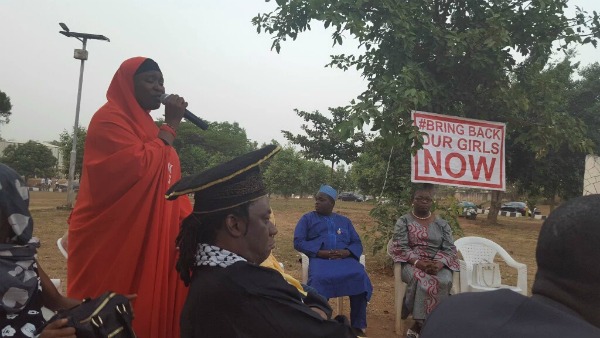
World Mom, Aisha Yesufu, speaks as activists gather in Abuja continuing to demand the rescue of the 219 Chibok Girls captured in April 2013 in Nigeria.
While others enjoy Christmas, our Chibok girls are weeping silently in their hearts. They probably do not even know that today is Christmas. That would be the worst.
For 620 days our Chibok girls have been in captivity. Mocked by their captors that no one would come, and, indeed, no one did.
Our Chibok girls have had to spend another Christmas in captivity, while the world moved on and forgets that 620 days ago the lives of 219 Chibok girls were frozen in a nightmare they never envisioned. They were captured by Boko Haram when they set out to get an education. Young, educated girls, whose empowered voice the terrorists found threatening.
For daring to have a mind of their own by getting an education, they have been put in bondage for 620 days.
How are Chibok parents faring during this day of festivities knowing that their precious daughters are with monsters who have no drop of humanity in them?
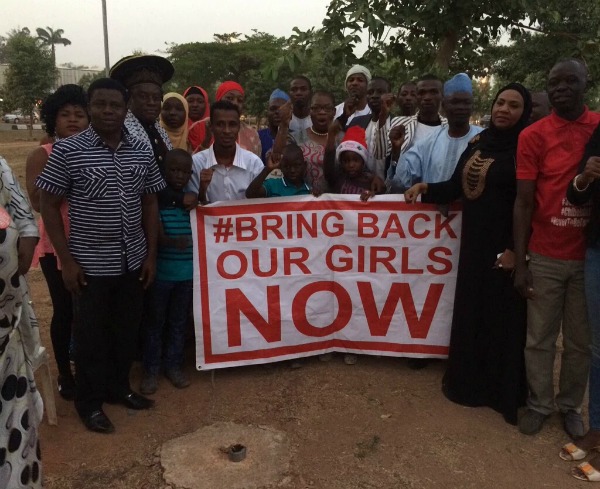
How do they cope thinking of all the atrocities their daughters have had to endure this past 620 days? Ahhhhh…they must die a thousand deaths everyday imagining what their daughters have had to go through.
While many in the world are waking up today after celebrating Christmas with their family and friends, please remember the 219 #ChibokGirls who spent their second Christmas away from their loved ones and in captivity.
Please remember #ChibokParents who have had to celebrate a second Christmas without their daughters and struggle to put on a brave face for the other children. All so that the terrorists would not steal the joy of the season from their children the way in which they stole their daughters.
#BringBackOurGirls NOW & ALIVE
This is an original post to World Moms Blog by World Mom, Aisha Yesufu in Nigeria.
Photo credits to the author.
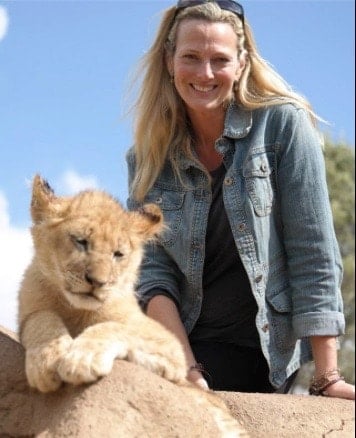
by World Moms Blog | Dec 23, 2015 | 2015, Africa, Maternal Health, Mission Motherhood

As part of World Moms Blog’s collaboration with BabyCenter’s Mission Motherhood™, our World Moms are writing posts on maternal health around the world. In today’s post, Elizabeth Atalay in the USA writes about “Kangaroo Care”, a process of keeping newborn babies close to the mother. Kangaroo Care has been proven to prevent newborn deaths and aid in the development of preterm babies.
“Power cuts are a frequent occurrence in Ethiopia, as they are in many developing countries, and the lack of reliable power impacts health and development in many ways. To a premature baby clinging to life in an incubator, it could be deadly. In the past nearly ¼ of the babies would not survive in the NICU at the Black Lion Hospital due to complications from preterm birth, lack of resources and manpower. The American Academy of Pediatrics Guidelines suggest a minimum of one Registered Nurse for every one to two patients in intensive neonatal care; at Black Lion there was one nurse for 10 or more newborns.”
Read the full post over at BabyCenter’s Mission Motherhood™!
World Moms Blog is an award winning website which writes from over 30 countries on the topics of motherhood, culture, human rights and social good. Over 70 international contributors share their stories from around the globe, bonded by the common thread of motherhood and wanting a better world for their children.
World Moms Blog was listed by Forbes Woman as one of the "Best 100 Websites for Women 2012 & 2013" and also called a "must read" by the NY Times Motherlode in 2013. Our Senior Editor in India, Purnima Ramakrishnan, was awarded the BlogHer International Activist Award in 2013.
More Posts
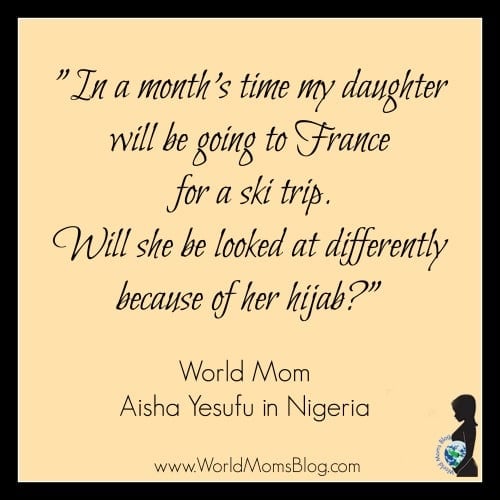
by Aisha Yesufu | Dec 9, 2015 | 2015, Africa, Europe, Nigeria, Terrorism

My husband came into the room while I was still sleeping on the morning of the attack and told me of a deadly attack in Paris. In my half state of sleep I blocked the news out. I didn’t want to take in another pain. My body wasn’t ready to grieve.
I slept on hoping I would wake up, and it would all have been a mistake or a dream. I woke up and refused to watch the news or go onto social media. I didn’t want what I thought I heard my husband say to be true. I lived in cowardly denial.
I finally put on my phone which I had switched off, and I then had a call from a friend. They said, “Yes, there has been an attack. And, yes, many died!” “Oh God!”, I cried out.
“Has anyone claimed responsibility?”, I asked fearfully. “ISIS.”, my friend told me. “Not again,” I groaned.
To lose a loved one so brutally is horror. To know that somebody somewhere decided to kill your loved one who never offended them and whom they probably had never even seen is painful. An accident, I can understand, but that I can never.
In a month’s time my daughter will be going to France for a ski trip. Will she be looked at differently because of her hijab? My thoughts are that someone in Paris may look at my daughter in her hijab differently from the rest when she is as much victim.
When an attack happens in places like Paris it’s not that their lives are more important, but that the outcry is high even from other countries that have their fair share of terrorism. It’s fear! With all the security in such places? How can this occur?
If these tragic events can happen in places like Paris with their state of the art, high level security then they can wipe us out, here, in Nigeria with our best security. This is what goes through our minds.
It can embolden some to attack with all the copycat crimes going on. We have had so many attacks in recent times. It leaves a palpable fear in the air.
I then saw outrage on social media of people who felt that too much emphasis was placed by the world on the French lives rather than on all lives. I couldn’t find it in me to be outraged. The French cried out to the world and the world joined them in their moment of grief.
When we are attacked in Nigeria a lot of us within Nigeria seem to not care. Even our government. So how would the world cry with us when we have refused to cry for each other?
An attack happened a while ago in which over a 100 were killed it took more than 3 days before there was an official statement from the President condemning the attack. There was outrage from a few of us, and we were attacked by so many for demanding the government acknowledge an attack and death of Nigerians.
With such callousness from our own, how would the world acknowledge our grief?
When the world gets no official statement from Nigerian government, how can they grieve with us when we haven’t even acknowledged that ours were killed?
I am a pragmatic person and would always tell myself the truth no matter how it hurts. I cannot begrudge the French and the world supporting them when we haven’t supported our own. Until we take our lives seriously no one else will, and it would always be painful when my government within hours would commiserate with other countries when they are attacked and refused to acknowledge attack in our own country until days later.
I have been shown I matter by individuals reaching out to me when there is attack from different parts of the world, especially the World Moms Blog family. You would not understand how touching those moments are. It shows I am a member of the human race.
My daughter asked me just yesterday if she would still be going to Paris next month. I told her, “YES!!!” No one will make us live in fear.
Do they have heart? Do they know what it is to lose a loved one? Why do they inflict such on others? What is Islamic about terror? NOTHING!!!
Islam preaches peace. Islam enjoins a right of environment & animals on us. One is not allowed in Islam to cut down a tree.
God said in the Qur’an to kill one human is like killing humanity. We have to unite and let the goodness in us all outshine the few evil ones. Terrorist attack to anyone anywhere in the world is terrorist attack to everyone everywhere in the world.
God rest the souls of the dead and console the families of the departed all over the world. It’s not easy.
This is an original post to World Moms Blog by contributor Aisha Yesufu of Nigeria.

by World Moms Blog | Nov 18, 2015 | 2015, Africa, Asia, Award, Europe, International, Middle East, North America, Oceania, Purnima, South America, World Interviews, World Moms Blog, World Voice

It is with great honor that we announce that World Moms Blog’s Senior Editor, Purnima Ramakrishnan, has been awarded an Elizabeth Neuffer Memorial prize for print and online coverage of the United Nations and UN Agencies.
Purnima is the joint winner of the Bronze award, which will be awarded at the United Nations Correspondents Association’s (UNCA) gala in New York City on December 14th, 2015 by the guest of honor, U.N. Secretary-General Ban Ki-moon.
As an active Senior Editor for World Moms Blog since 2011, Purnima’s posts include celebrating Day of the Girl in India through murals, her response to the Peshawar attacks in 2014, and speaking out after the Nepal Earthquake this year. Previously, she has also written about unwanted girl children in India, the Brazilian health care system, and breaking the caste system in India. You can find all of her posts at World Moms Blog on Purnima Ramakrishnan’s author page.
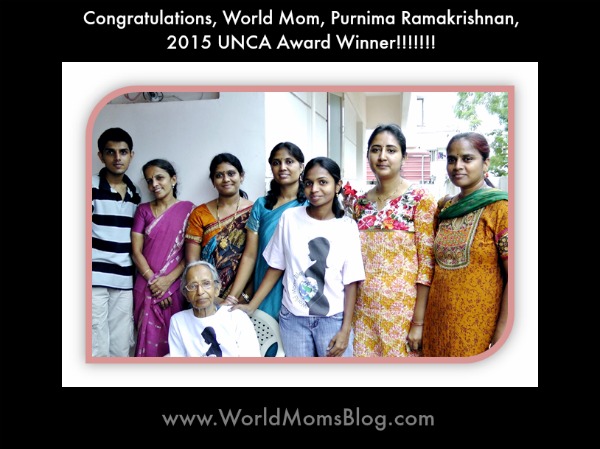
In addition to her work at World Moms Blog, she reported on poverty issues facing Brazil in her fellowship with The International Reporting Project. In 2013 she was a BlogHer International Activist Scholarship winner and travelled to Chicago, USA to speak on her advocacy for vaccines for children in the developing world. At the BlogHer conference she launched World Moms Blog’s successful 8 month #Moms4MDGs campaign to raise awareness for poverty issues around the world. Purnima has also been featured on The Gates Foundation’s Impatient Optimists blog, the UN Foundation’s Shot@Life blog, The Huffington Post and on Baby Center’s Mission Motherhood™.
“The dinner will be attended by U.N. officials, diplomats, Hollywood celebrities, corporate and cultural organizations and journalists from around the world,” according to the official award notice. We are currently (and excitedly!) coordinating arrangements with the hope that Purnima will be able to travel from India to New York City to accept this prestigious award in person.
It is also with a flood of emotions that we learned about the life of Elizabeth Neuffer, the woman for whom the UNCA award was named. Elizabeth Neuffer was The Boston Globe bureau chief at the U.N., who died in a car crash at the age of 46 while covering postwar Iraq in 2003.
An award winning journalist, she was the first to report that indicted war criminals remained in power in post-war Bosnia, where she spent a year reporting on war crimes. Early on in her career, she reported from federal court in Boston, Capitol Hill during the Clinton Administration, Moscow during the break up of the Soviet Union and the Middle East during the Gulf War. She then became European Bureau Chief from 1994-1998 in Berlin. Elizabeth also dispatched to Africa to report on the 1996 return of Hutu refugees from Zaire to their native Rwanda.
Learning about the life of Elizabeth Neuffer reminds, us, at World Moms Blog that there is so much work left unfinished when it comes to reporting on human rights and justice in the world. We will gladly carry a small spark from the large torch she lit by the example of her leading reporting. It is an honor for Purnima to receive this award as an Senior Editor for World Moms Blog. Congratulations to Purnima Ramakrishnan and the entire World Moms Blog team! We will continue to work hard to provide a voice for women around the world and speak up for those who need us most.
Thank you to the UNCA Awards Selection Committee for their selection and congratulations to all UNCA award winners!
For more on the UNCA.
References:
“Elizabeth Neuffer, 46, Reporter Overseas for the Boston Globe” and Wikipedia Elizabeth Neuffer.
World Moms Blog is an award winning website which writes from over 30 countries on the topics of motherhood, culture, human rights and social good. Over 70 international contributors share their stories from around the globe, bonded by the common thread of motherhood and wanting a better world for their children.
World Moms Blog was listed by Forbes Woman as one of the "Best 100 Websites for Women 2012 & 2013" and also called a "must read" by the NY Times Motherlode in 2013. Our Senior Editor in India, Purnima Ramakrishnan, was awarded the BlogHer International Activist Award in 2013.
More Posts

by Tara Wambugu | Nov 5, 2015 | 2015, Culture, Kenya, Tara Wambugu
There’s a lovely naming culture practiced by the Kikuyu tribe here in Kenya: the the first-born son is named after the paternal grandfather, the first-born daughter is named after her paternal grandmother, and so on. My husband is Kikuyu, and we decided to adopt this tradition for our girls’ middle names.
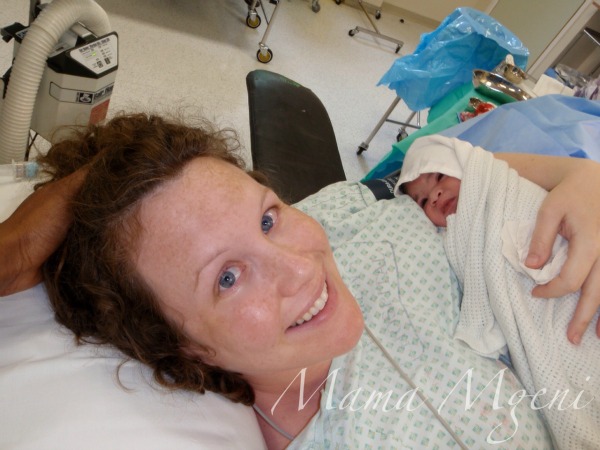
Claire, our eldest child, was given Nyambura as her middle name, after my husband’s mother. Nyambura means “born during the rains.” Since Claire was born in the U.K., we think her name is beautifully befitting! The second-born daughter would traditionally be named after her maternal grandmother, but we really wanted both girls to have Kenyan middle names. When Heidi was born, we decided to give her the middle name Makena, which means “the happy one.” Her name also fits her perfectly.
There are over 40 tribes in Kenya, with very different cultures and traditions. After choosing to name our girls with traditional Kenyan middle names, I was curious about the naming traditions of other tribes. I reached out to the mothers in a local online parenting group here in Nairobi to ask about their own tribes’ naming traditions.
Several tribes follow the tradition of naming their children according to the time of day the child was born. A boy named Otieno was likely born at night. The name Chebet is for a girl who was born at midday when the sun is at its highest point. A boy with the name Kerotich may have been born in the early evening, when the cattle come back to the corral.
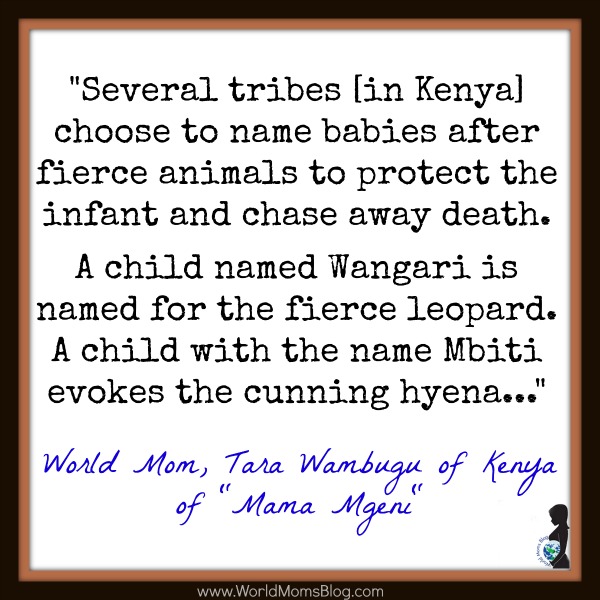
Many tribes practice naming their children after events or circumstances surrounding the child’s birth. In this tradition, the name Okello is for the first baby boy born after twins. Cheruto is a girl’s name for a child born away from the family’s traditional homeland. The name Aoko signifies a child born outside. The name Nyanchera is for a child who was born on the way to hospital.
Several tribes also share the custom of naming babies after the seasons. The name Akeyo signifies a child born during the harvest. The name Kipkemei is for a child born during the dry season. Nanzala is a girls’ name for a child born when there is famine.
Several tribes choose to name babies after fierce animals to protect the infant and chase away death. A child named Wangari is named for the fierce leopard. A child with the name Mbiti evokes the cunning hyena. A boy called Njogu is named for the mighty elephant.
I loved learning about all these beautiful traditions for naming your baby!
I think it’s so wonderful that a name can tell a story, and can carry with it the memory of generations of ancestors. Some even believe that a baby’s name will have a strong influence on the child’s eventual personality.
I am so happy that both of our girls have beautiful, meaningful Kenyan names!
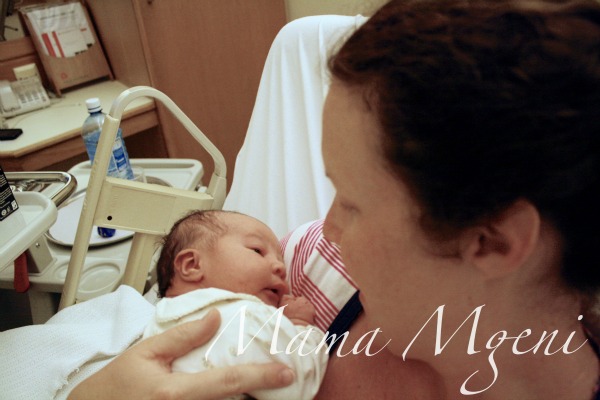
What are the cultural practices for naming babies where you come from? Did you follow a cultural tradition when naming your own children?
This is an original post to World Moms Blog by Tara Wambugu. Follow Tara and her family’s adventures on her blog, Mama Mgeni, and connect with her on Facebook and Twitter.
Photo credits to the author.
Tara Wambugu is a wife, a mother of two, and a Kenya-based lifestyle blogger covering parenting, family life, travel, and more. A former aid worker, Tara has worked in various countries in Europe, Central Asia, Africa, and Central America. She is now a stay-at-home mom living in Nairobi with her husband and their two sassy little girls. You can follow Tara and her family’s adventures on her blog, Mama Mgeni.
More Posts - Website
Follow Me:






 This time next week, I’ll be in Ethiopia with my daughter. My Ethiopian daughter. She is six years old, and four of those have been with us. Four years which have been wonderful and rough all at the same time.
This time next week, I’ll be in Ethiopia with my daughter. My Ethiopian daughter. She is six years old, and four of those have been with us. Four years which have been wonderful and rough all at the same time.

